Parker Snider: Limited government demands more, not less, of Alabama
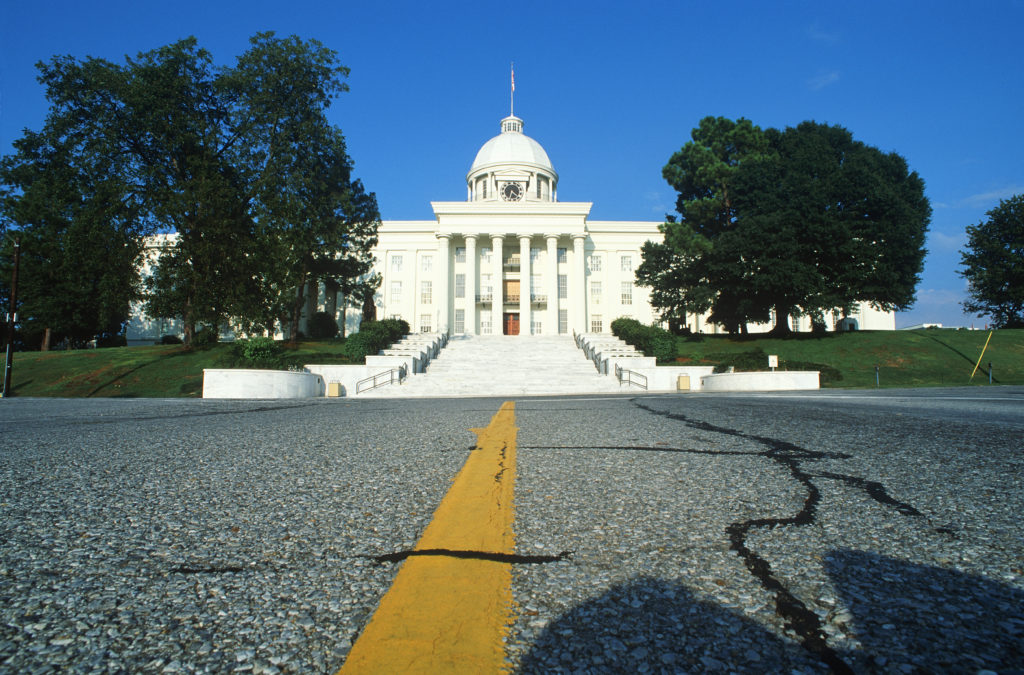
In Alabama, politicians and residents alike proclaim the benefits of limited government. Appropriately, our state’s motto is Audemus jura nostra defendere, which, when translated into the more popular language of English, reads “We dare defend our rights”. The phrase in original context––an 18th century poem by Sir William Jones––is followed by the potential thief of rights: “the tyrant while they wield the chain”, i.e. the government. Promoting limited government, evidently, is woven into what it means to be ‘Alabama’, and rightly so. Public office holders, candidates, and voters regularly point to the necessity of a limited government, as it is through limited government that our freedoms remain intact. What is not as often discussed, unfortunately, is that smaller or limited government requires larger voluntary community engagement. This is true because there will always be gaps where government could arguably be active. Limited government, by definition, means that there will be some spaces, some needs or hopes of the community or community members, that are not met by a central power. In states that don’t deem limited government as a highly as Alabama, these gaps tend to be filled by government. In a state like Alabama, however, these spaces are befittingly left to be filled by the private sector. The duty, therefore, of community members to selflessly and actively consider others is higher in a state that prioritizes limited government than in one that does not. Alabama, regrettably, yields ample problems that need innovative, community-based solutions. For example, metro Birmingham, the state’s primary economic powerhouse, is growing at a much more modest rate than peer cities like Nashville in terms of GDP and employment. A report by the “Building (It) Together” campaign also mentions that the metro area is losing workers while most peer cities are not. Obviously, these are problems if the state wants to thrive economically in the future. There, of course, are a variety of contributing causes to this economic underperformance, both in Birmingham and across the state. In order to address some of these underlying issues––and in light of our understanding of the responsibility of the private sector––the Alabama Policy Institute is participating in a community initiative we call Hiring Well, Doing Good. In short, Hiring Well, Doing Good takes aim at one of the systematic problems facing our state: chronic unemployment. Through working with community organizations including non-profits, foundations, and employers in the state, API plans to connect the chronically unemployed with training opportunities, professional development, and––ultimately––long-term employers. Our hope is to be a small part of solving the issues facing the Birmingham metro and Alabama as a whole. Regardless of what API is doing, the principle stands. Stalwarts of limited government must remember that limited government demands more, not less, of Alabama. ••• Parker Snider is Manager of Policy Relations for the Alabama Policy Institute, an independent, nonpartisan, nonprofit research and educational organization dedicated to strengthening free enterprise, defending limited government, and championing strong families.
Parker Snider: Charter schools are keeping promises

On the campaign trail in 2012, Mitt Romney remarked that “charter schools are so successful that almost every politician can find something good to say about them.” Romney was right. President Bush told crowds he was a “big believer” in charter schools, President Obama proclaimed National Charter Schools Week year after year, and 2016 presidential candidates Bernie Sanders, Donald Trump, and Hillary Clinton are all on record praising public charter schools. From 2016 to 2017, however, support for charter schools dropped a startling 12 percent, from above 50% to below 40%, according to a 2017 EdNext poll. Interestingly enough, the decrease was equal for both Democrats and Republicans. One reason for falling support is likely an increased public awareness of the failures of some charter schools and charter school executives. In 2016, documented cases of charter school executives turned criminals hit the airwaves in multiple states. Additionally, reports of charter schools suddenly closing, leaving students to fend for themselves in the middle of the school year, have made headlines and been the subject of many op-eds in national newspapers. It’s easy to see why these public failures might quell support for charter schools. Truthfully, however, across the nation and in Alabama, many charter schools are fulfilling their promises. For example, KIPP, the nation’s largest non-profit public charter school network with over two hundred schools, sees a majority of its students outpacing national growth averages. Additionally, most KIPP schools are outperforming the traditional public schools in their districts. Although there are no KIPP schools in Alabama, Sumter County’s new University Charter School opened its doors last Monday. As described in Trisha Powell Crain‘s AL.com article, the mission of UCS is to integrate the community while providing a high-quality education. UCS is on its way towards achieving that mission. Contrary to county tradition, UCS boasts a student population that is about half black and half white. Before UCS, the schools in Alabama’s poorest county were still segregated, decades after the U.S. Supreme Court ruled that separating white and black children in different schools was unconstitutional. Although charter schools are few and far between in Alabama (only five have been approved since charter school legislation made them possible in 2015), the strides that University Charter School has made for its community should encourage more districts to pursue innovative ideas for their school systems. Innovative ideas include charter schools, of course, but NBA superstar LeBron James‘ I Promise School in Akron, Ohio – a public non-charter school that is a partnership between the I Promise Network, the LeBron James Family Foundation, and Akron Public Schools – proves that solutions to education woes can come in many forms. Regardless of the specifics, Alabamians should be thankful for the good that charter schools and other innovative education options have created for students across the country. We must not, however, neglect to learn from the failures of schools in other areas. Alabamians should work, therefore, to replicate those innovate solutions that are successful, as University Charter School is doing, here in our state. ••• Parker Snider is Manager of Policy Relations for the Alabama Policy Institute, an independent, nonpartisan, nonprofit research and educational organization dedicated to strengthening free enterprise, defending limited government, and championing strong families.
Congress passes legislation to lessen burdensome occupational licensing
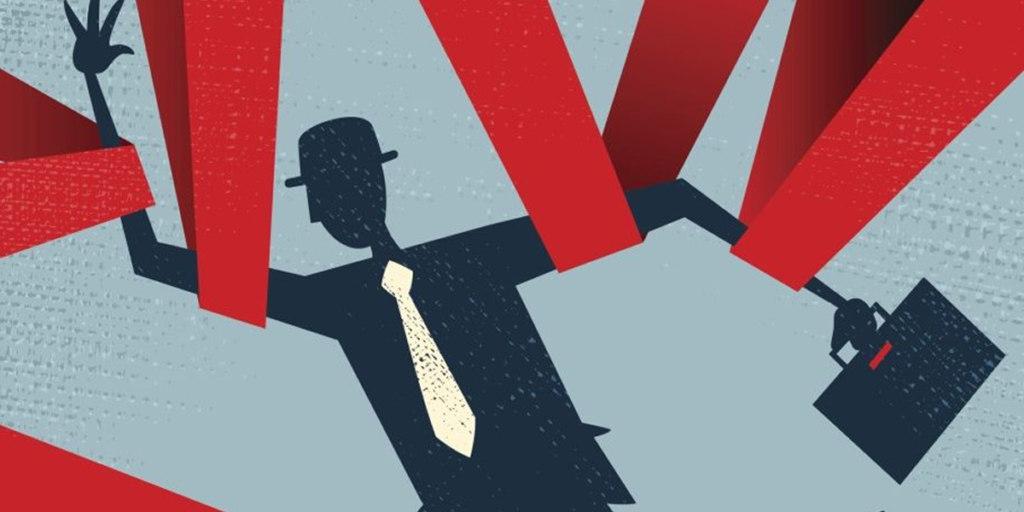
In late July, Congress passed the Strengthening Career and Technical Education for the 21st Century Act aimed at helping states begin long overdue occupational licensing reforms. As describes in an article by the Washington Examiner, the bill includes the New HOPE Act, “which allows governors to use existing federal funds for technical education to review licenses or certifications that pose an unwarranted barrier to entry into the workforce and do not protect the health, safety, or welfare of consumers.” Alabama 1st District U.S. Rep. Bradley Byrne was a co-sponsor of the bill and instrumental in its passing. In a floor speech Byrne told his fellow representatives, “we have a skills crisis in our country. We actually have more job openings than we have unemployed Americans. This is keeping our economy from reaching full potential. “So how we do solve this problem? Well, a big way is through expanding career and technical education programs. As the demands of the workforce continue to change and become more complex, these programs are critical to building the workforce of the 21st Century,” Byrne continued. The original purpose of these licenses was to protect consumers from those who would offer them a bad or unsafe product or service; but over time license requirements became more extensive, costly, and now cover a numerous amount of vocations. The Alabama Policy Institute (API) released a report in January detailing how detrimental, and costly occupational licensure is to Alabama. According to the report, ”Alabama licenses a total of 151 occupations, covering over 432,000 Alabama workers, which represents over 21 percent of the state’s labor force.” “We estimate the total initial costs of occupational licensure, excluding the educational costs, to be $122 million. Annual license renewal costs both workers and consumers (who often pay for these costs in increased prices) $45 million total,” the report continued. “This bill won’t get nearly the attention it deserves, but this is a huge, bipartisan victory for students, businesses of all sizes, and the American people,” Byrne said in a press release. “By improving our nation’s career and technical education programs, we can better meet the demands and realities of the 21st Century economy and put more Americans to work.”
Taylor Dawson: What does freedom mean to me?

When most of us think about the Fourth of July, we think about pool parties, cooking out, fireworks, and spending time with friends and family. Others think about our love for America. Some of us even wait all year for an occasion to wear a t-shirt that has the Declaration of Independence printed on it. Is that just me? I can’t hide it—I’m a huge fan of the Declaration of Independence. Almost every time I’ve visited Washington D.C., even if it’s only for a weekend, I make time to visit the National Archives just to see it. It’s not changing, but I still can hardly make it longer than a year without looking at it. When you look at the Declaration of Independence, one of the things you may notice is that most of the text is written in a script that is barely legible. A few words, however, are written in a script that is much clearer and easier to read. Three of those words are “free and independent.” America’s founders risked their lives to create a nation where citizens could truly be “free and independent”. As children, a lot of us learned—when we were told we couldn’t do something—just to say, “it’s a free country! I can do whatever I want!” While that didn’t get me anywhere most of the time, aside from being swiftly sent to my room when I said it to the wrong audience, I’m glad I learned that phrase. I’m glad I grew up declaring that freedom was at the core of my country’s values, whether or not I realized that was what I was doing. So now, as a millennial in the political sphere, I find myself thinking, “what does freedom really mean to me?” Freedom, to me, means the ability to think, speak, worship, work, and make decisions for myself with minimal—if any—government interference. That’s how the founders set up our republic. As a woman, I’m told I have to support certain movements. As a millennial, I’m told I have to vote a certain way. But as an American, I know that I have the freedom to say what I want, believe what I choose, and vote for who and what I think is best, whether others agree with me or not. In some ways, it seems like freedom is losing these days. I sometimes find myself afraid to speak freely out of fear of being shouted down for my opinions. Sure, my freedom to express myself is being respected by the government, and I absolutely respect the freedom of others to disagree with me. But when we see things like Kanye West speaking positively about President Trump on Twitter and causing a media firestorm, or college students and professors being shut down for expressing their opinions, it can be disheartening. While the media and social media often make it look like much of the country is trending toward a departure from freedom, the fight for freedom is going strong. For example, just last week, the United States Supreme Court handed down two decisions that decisively upheld the First Amendment. The decision in Janus v. AFSCME restored free speech rights to millions of government workers, and in NIFLA v. Becerra, the Court ruled that California could not require pro-life pregnancy centers to promote state-provided abortion services to their clients. Additionally, earlier this year right here in our own state, the Foundation for Individual Rights in Education gave Auburn University its highest rating for free speech policies on college campuses. It may seem like freedom is being threatened in America, but in reality, freedom is on the move. Do not get discouraged, as I all too often do. This Fourth of July, embrace the freedom given to us by the founders. Many men and women have fought hard to preserve it. That is why the Alabama Policy Institute exists—to defend and promote your freedom. You have my word that for as long as we can, we will fight for freedom in America and in Alabama. ••• Taylor Dawson is Director of Communications at the Alabama Policy Institute (API). API is an independent, nonpartisan, nonprofit research and educational organization dedicated to strengthening free enterprise, defending limited government, and championing strong families. If you would like to speak with the author, please e-mail communications@alabamapolicy.org or call (205) 870-9900.
Parker Snider: Seeing the power of compassion, hope, and work first-hand

Three years ago, I had the privilege of visiting South America for the first time. During my stay, I—along with the rest of my group—met a family whose story broke our hearts. Led by a single mother, the family lived in an aluminum-roofed and mud-filled house in the middle of a village town square, right between two churches. Her adult children still lived with her in their home: one blind and two deaf, blind, and intellectually disabled. Their abusive father abandoned them long ago. The government cared little about these rural people. The two churches, within spitting distance, never troubled themselves with the family. They were, by many standards, forgotten. Thankfully, however, our local partner became aware of this family and determined a way that we, temporary visitors, might make a lasting impact. Through some South American creativity and a lot of bamboo, we were able to make their lives easier, safer, and cleaner. We left feeling tired from work yet restless to know our effectiveness, discouraged by their past yet hopeful for their future. This June we returned to the family’s home. Our arrival was met not with the timid greetings of before but with a new and palpable joy. To my surprise, present at the home was not only the family, but a host of other community members. I was eager to see whether our work had been successful, and the locals were eager to show us that it had, in fact, not been in vain. Just as exciting for me to see was that out of this home now grows a small business. Together with the community, members of the family weave and sell baskets (which we were more than happy to purchase). A lot has changed since our first visit. I cannot be sure exactly why, but I have some ideas. First, I trust that being shown God’s love, not only through our initial visit but through the presence of many others over the years, has reminded them of their worth. Second, I am confident that having certain urgent physical needs met has instilled a hope that their future may be better than their past. Third, I believe that working, for however long, has provided a sense of dignity. This transformation in a South American village offers principles that we must remember as we seek community renewal in the United States. First is the fact that struggling Americans need to be reminded of their value as much as this South American family. We often, intentionally or not, strip people of their God-given worth when we reduce them to whether they receive government support or not. The truth is that, regardless of wealth or status, all people are infinitely valuable. We ought to recognize and exemplify this reality regularly. Only when our compassion is felt and truly experienced by those facing difficulties, specifically the unemployed, will our oft-heralded advice to pursue the dignity of work—the second principle the South American family’s transformation reveals—be received. Work has always been part of God’s design for humanity. In the very beginning, even before the curse of sin, God placed Adam “in the garden of Eden to work it and keep it” (Genesis 2:15). John Piper writes that “God made us to work. He formed our minds to think and our hands to make. He gave us strength—little or great—to be about the business of altering the way things are.” Therefore, we must promote work not because we’re sick of supporting others, but because we trust that God’s plan for humanity’s good is for us to work, and to work hard. Witnessing the change of this family is just one of many formative and equally (if not more) incredible experiences from my time in South America. Most of these were, of course, more personal. This family’s transformation, however, demonstrates general and essential truths that we would do well to remember—namely the power of compassion, hope, and work. ••• Parker Snider is Policy Relations Manager at the Alabama Policy Institute (API). API is an independent, nonpartisan, nonprofit research and educational organization dedicated to strengthening free enterprise, defending limited government, and championing strong families. If you would like to speak with the author, please e-mail communications@alabamapolicy.org or call (205) 870-9900.
Parker Snider: Three years after Obergefell
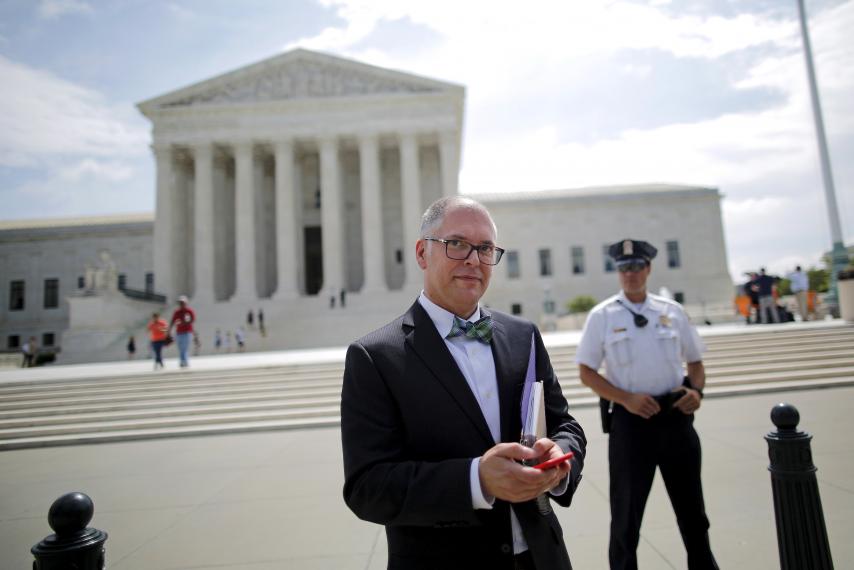
In June of 2015, same-sex marriage became legal in all fifty states. The Supreme Court ruled in the Obergefell v. Hodges case in favor of Jim Obergefell, whose marriage in Maryland was not recognized in Ohio. Unexpected to most, exciting to some and alarming to others, the Obergefell ruling was hailed as monumental, final, and as historic as Brown v. Board of Education or Roe v. Wade. It’s been three years now. A lot hasn’t changed: Alabama is still good at football, Tom Cruise is still making Mission Impossible movies, and our state’s U.S. House of Representatives delegation is still legislating. Some things, however, have changed – including the public opinion of gay marriage. From 2015 to 2017, the percentage of Americans that favored same-sex marriage increased from 55 to 62 percent. What was in 2012 opposed by most Americans is now accepted by almost two-thirds of Americans. That number won’t be going down any time soon. The approval rate of same-sex marriage by millennials is just shy of 75% and still increasing. Same-sex marriage faces most of its opposition in those born before 1946, and even that approval rate is nearing the 50% mark. Clearly, same-sex marriage is approaching complete normalization in the United States. What is less clear, though, is the further impact—beyond the legalization of same-sex marriage—this normalization will have on the future. Conservative pundits everywhere asked the “what’s next?” question concerning same-sex marriage before Obergefell, suggesting polygamy and the surely-to-be-legalized ability to “marry a turtle” (a direct quote from Sean Hannity). Regardless of whether these suggestions are likely, I tend to look to Europe to see what social movement might come next to America instead of the musings of political personalities. In Europe, polygamy and animal marriage is still illegal. What is happening in Europe, however, is a disturbing movement against religious liberty. For example, the Council of Europe determined in 2007 that their definition of human rights must supersede “any religious principle”, creating clear problems for both Christians and Muslims who would refuse to officiate a same-sex marriage. France’s burqa ban, a law disallowing Muslim women from wearing certain religious clothing, is still on the books, and the Court of Justice of the European Union recently ruled that many private employers can ban religious symbols from the workplace. Even more worrisome is the fact that Ireland’s prime minister recently promised that many Catholic hospitals will be forced to provide abortions. Unfortunately, we already see shadows of the European reality within our borders. Attempts to force Christian bakers to create cakes for same-sex marriages, nuns to pay for birth control, and Christian colleges to approve of same-sex relationships demonstrate that Americans must be ready to protect religious liberty. One year after the Obergefell ruling, in the summer of 2016, I stumbled upon Jim Obergefell. He, along with others, was a witness in a House Oversight Committee Hearing I was attending. I was, admittedly, surprised to be in the same room as the man largely responsible for the legalization of same-sex marriage and somewhat apprehensive to the idea of speaking with him. In my interactions with him, however, Mr. Obergefell did not seem to be an anti-Christian warrior but instead a gracious and kind man. To my surprise and confusion, I saw no desire in him to eliminate Christianity or even any animosity towards Christians. Meeting Jim Obergefell showed me something important: most people are not fighting against something, but for something. They’re not angry, they’re hopeful, and genuinely trying to make the world a better place. That reality is a gift for those of us who want a solution. Three years after Obergefell, Americans should expect conflicts between religious liberty and the right to same-sex marriage created in 2015. When they come, we must work not towards a binary win-lose solution but for one that allows these two foundational American principles—religious liberty and individual freedom—to flourish together. ••• Parker Snider is Policy Relations Manager for the Alabama Policy Institute (API). API is an independent, nonpartisan, nonprofit research and educational organization dedicated to strengthening free enterprise, defending limited government, and championing strong families. If you would like to speak with the author, please e-mail communications@alabamapolicy.org or call (205) 870-9900.
Parker Snider: Monopoly and locksmiths

I love the game of Monopoly. The hope that I will land on expensive properties first, the poker-esque bluffing, and the art of deal-making with unsuspecting friends makes for a great game night. Even though I love Monopoly, I don’t always enjoy it. When I’ve missed out on important properties and am mortgaging the few I have left to pay the winner, I’m not having any fun. When it’s obvious I will not win and I slowly move from competitor to benefactor, I’m not thankful and neither are others facing a similar end. I think this distaste says something obvious: Monopoly is great for the winner. Crowding out competition and increasing prices because you have the power to do so is good sport for the already-powerful, yet detrimental to the mobility of others. Monopoly is predicated on our tendency towards self-preservation and self-centeredness. This tendency, utilized for recreation in Monopoly, is manifested in Alabama through our occupational licensing laws (also known as permission-slip-to-work laws). Take locksmiths, for example. Established in the late 1990s, the Alabama Electronic Security Board of Licensure regulates both security alarm installers and locksmiths. Not a big deal, right? Wrong. Wrong because Alabama is, as shown in a recent report, one of only 15 states that licenses locksmiths. Wrong because being in such a minority mandates we ask, “Why do we license locksmiths in the first place?” Robert Burns describes his experience as a locksmith in a video recently published by the Alabama Policy Institute. In it, he suggests that the licensing of locksmiths was established in Alabama to protect the power of practitioners – not the safety of the public – and that it makes becoming a locksmith more difficult than necessary. Before any Alabamian can work as a locksmith they must pay fees, pass tests, and wait to be approved by the government. In most of the country, these hurdles are nonexistent and residents hoping to work as a locksmith can do so when the private sector (through employers and training), not the government, deems appropriate. In Alabama, however, tendencies that should be reserved to a board game—tendencies to concentrate power towards ourselves and restrict competition—have been allowed into our occupational licensing structure. We must make every effort, therefore, to identify where licensing exists only to disincentivize entrance into a profession and to eliminate regulations where necessary. ••• Parker Snider is Policy Relations Manager for the Alabama Policy Institute (API). API is an independent, nonpartisan, nonprofit research and educational organization dedicated to strengthening free enterprise, defending limited government, and championing strong families. If you would like to speak with the author, please e-mail communications@alabamapolicy.org or call (205) 870-9900.
Parker Snider: State elections matter more than most think
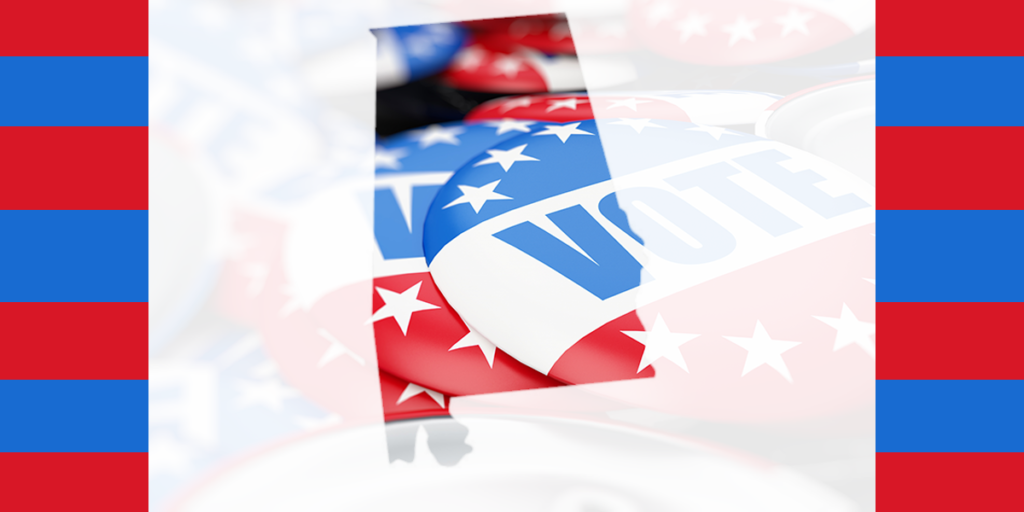
Washington, D.C.—one of the most visited cities in the world—oozes a sense of superiority and power. How could it not? Our nation’s Capitol building is truly enormous, the Secret Service and Capitol police carry rifles regularly, and the President of the most powerful country in the world lives within its borders. Anyone, whether a visitor, summer intern, or permanent resident, feels that they are amongst the most formidable and important people in the world when in Washington. This sentiment is mostly true. The President, Congress, and Supreme Court do yield great authority and power to influence our lives—if they choose to use it. The truth, however, is that state governments are more likely than the federal government to create laws and policies that affect our day-to-day lives. This is, in fact, how our country was designed. James Madison, a founding father and our fourth President, wrote in Federalist No. 45 that “the operations of the federal government will be most extensive and important in times of war and danger; those of the State governments, in times of peace and security.” In layman’s terms: the federal government will protect our national security and borders while the states dictate domestic policy. Admittedly, Madison’s vision of federalism is not exactly what we see today, as the federal government often rules like it is “most extensive and important” in both peacetime and wartime. Even so, the 10th amendment of the Constitution remains, and all powers not delegated to the federal government are constitutionally reserved to the states. Although the federal government finds itself at a standstill arguing about all types of domestic policy, state governments are productively creating them every day. Take, for instance, the Alabama legislature. In the first three months of 2018, the Alabama State House and Senate passed over 300 bills. The U.S. Congress, with all its power and superiority, has passed only 172 bills since the beginning of last year. This gap is even more pronounced when examined nationally. In 2014 alone state legislatures passed over 24,000 bills. The 113th Congress, by contrast, passed only 296 bills in both 2013 and 2014. This productivity gap is largely because, unlike in Washington, many states have supermajorities of a singular political party. This makes it immensely easier to pass legislation in the states. These laws, although restricted to a single state, are not limited to minor issues. During the Obama administration, for example, states enacted over 200 restrictions on abortion. State governments are also in charge of public education, determine how to tax their residents, and decide infrastructure spending—spending that could easily impact your daily commute. State governments also recruit businesses and jobs to the area, determine many welfare benefits and qualifications, regulate occupations (for better or for worse), and draw their own district lines. The reality is that the actions of the state government can have immediate and consequential effects on our everyday lives. This makes it critically important to know the candidates we are voting for in state elections. The days of the national media covering Alabama politics constantly are, for the moment, over. Fox News and CNN aren’t reporting on our governor’s race like they did last year’s race for U.S. Senate—and they certainly are not following our races for lieutenant governor, attorney general, or those of other down ballot positions. Alabamians, therefore, must intentionally learn about the candidates, their records, and their positions. Thankfully, there are ample opportunities to do so including recorded debates, coverage by local news organizations, and detailed policy questionnaires. On June 5th, Alabamians will vote. When we do, we must not vote blindly based off name recognition or slick advertising. We should, instead, learn about candidates up and down the ballot because state elections matter more than most think. ••• Parker Snider is Policy Relations Manager for the Alabama Policy Institute (API). API is an independent, nonpartisan, nonprofit research and educational organization dedicated to strengthening free enterprise, defending limited government, and championing strong families. If you would like to speak with the author, please e-mail communications@alabamapolicy.org or call (205) 870-9900.
Parker Snider: A guide to fake news

More than once every day. That’s how often President Donald Trump publicly calls something “fake”—be it a story, poll, or news organization. Just this week, Facebook CEO and Founder Mark Zuckerberg testified before Congress about, among other things, the proliferation of falsities on his social media platform, including in Alabama’s special election for U.S. Senate last year. We see the term everywhere, hear it lobbied daily on cable news, and use it ourselves (although perhaps often in jest). But what really is fake news and how do we spot it? The term “fake news” is often used to describe three very distinct and separate entities. First, the reporting of reputable national organizations (think press that have a seat in the White House briefing room, especially those in the first few rows) is often labeled as “fake news”. Although many would argue otherwise, the fact is that outright lies by the news divisions of these organizations are rare. When reporting failures do occur, news organizations hold their reporters accountable and publicly apologize and correct the story. The suspension of ABC’s Brian Ross after incorrectly reporting that Trump had directed Michael Flynn to contact Russian officials before the 2016 election is one example. This doesn’t mean, however, that print or televised media are free from falsehoods. They’re not. That’s because newspapers and news channels aren’t just publishing journalism—no, their business requires something else—opinion and commentary, the second bearer of the “fake news” label. Fox News’ Chief News Anchor Shephard Smith isn’t shy about rebutting the unsubstantiated claims of his primetime opinion counterparts. Why? In his words, “We serve different masters.” In his interview with Time, he goes on to say, “They don’t really have rules on the opinion side…some of our opinion programming is there strictly to be entertaining.” Nevertheless, false news and misrepresentation is most onerous and rampant, not on television or in newspapers, but on social media, the third and most appropriately labeled agent of “fake news”. Facebook and its competitors are places where claims, no matter how ridiculous, baseless, and unproven, spread like wildfire. It’s where we see a supposed ‘Friends’ reunion, that President Obama was a Black Panther, that Pope Francis cancelled the Bible, and that Snopes, a useful fact checking website, has ties to George Soros. Even so, Facebook is a major source of news for many people. Thanks to this and increased cries of “fake news”, I’ve found a few practices helpful in maneuvering this volatile news environment. As NPR’s Anya Kamenetz suggests, I begin with a gut check. Does what I’m reading affirm my biases, my hopes, and my expectations? If so, I should adopt a healthy level of suspicion. Second, I automatically reject any news in the form of a meme or screenshot. These easily sharable images often have incendiary captions, outlandish claims, and lack sources. They are designed to go viral—like the emails of yesteryear that promise a free vacation if you simply forward to ten friends—and they are rarely factual. Political memes and screenshots are one way Russians fostered division in 2016, and they are genuinely worthless. Third, I check the source. Does the website, newspaper, or cable news channel have a history of deceptive practices or falsehoods? Are they well-known and given access to government officials, or do they have a strange web address, an unknown name, or a homepage full of inflammatory headlines? Fourth, I look to see if other sources are corroborating the report. If not and the news is a credible exclusive, I expect the reporting organization to include their sources in the article. Fifth, I determine whether the author is a journalist or a commentator. As described earlier, commentators and journalists are very different, as are their standards. Finally, before reposting or sharing, I consider my own credibility. Do I want to be someone who shares unsubstantiated news and memes, or do I want to ensure its accuracy, and therefore my own? I’ve found these methods helpful, and I hope you do as well. ••• Parker Snider is Policy Relations Manager at the Alabama Policy Institute (API). API is an independent, nonpartisan, nonprofit research and educational organization dedicated to strengthening free enterprise, defending limited government, and championing strong families. If you would like to speak with the author, please e-mail communications@alabamapolicy.org or call (205) 870-9900.
Parker Snider: How Christ’s resurrection makes politics better
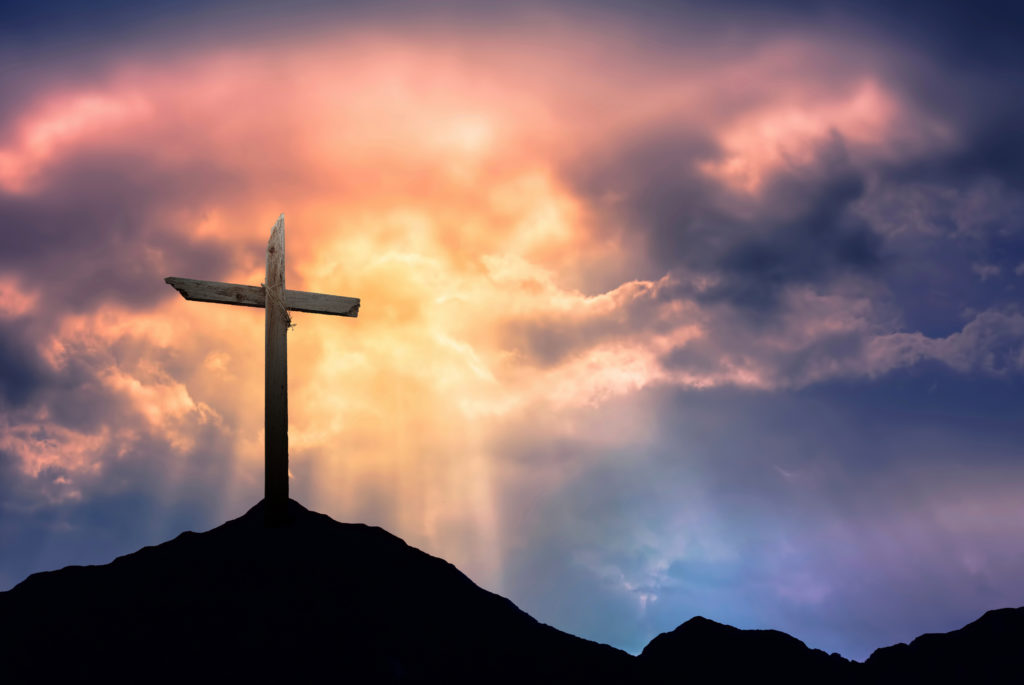
“He is not here; He has risen!” These are perhaps the most consequential words ever spoken. A man who three days earlier had been violently beaten, hung upon a cross, and buried lifeless in a tomb, is alive again! The reality behind these words—a risen Savior who had borne the sins of the world – prompted the disciples of Jesus to spend their lives spreading this news, Perpetua to die for her faith at the hand of the Romans and, more recently, Jim Elliot to take the still unknown Gospel to the Auca people of Ecuador. Christian heroes from years gone by voluntarily endured suffering, persecution, and death because the Resurrection changed one essential aspect of their being: their hope. The death and resurrection of Jesus, along with His subsequent appearance to more than five hundred witnesses, instills a confidence among believers that there is more than just this world. This confidence, this hope in Christ and the Resurrection, makes politics so much better. We can trust that, no matter who is in charge and what policies are being proposed in Washington or Montgomery, God will have His way. In times like these, this is a relief. Now this doesn’t mean that we can’t fight—we can and we do. It just means that when we fight, we must do so without manipulating facts, exaggerating outcomes, or fear-mongering. The other way, the “by any means necessary” approach, simply doesn’t align with the eternal hope we have as Christians. Since our hope is not in the government or political power, we are free to reject indefensible candidates on our own side, even if doing so might cost us political power. We are free to genuinely listen to those with different opinions, even if they challenge our own, and to praise goodness and truth, no matter the source. Furthermore, we can promote good policy honestly and in a way that is, as the Apostle Paul put it, “above reproach”. When we defend indefensible candidates, reject the validity of those experiences different from our own, scream “Liar!” every time a specific politician opens his or her mouth, or manipulate facts to create a certain narrative, we indicate that our ultimate goal is worldly power. Christians—we must do politics differently. Our faith in the Resurrection gifts us with knowing the ending – that one day all will be made well and we will praise Him for eternity. This knowledge of the future, however, is a luxury that non-Christians do not enjoy. They fight, sometimes “by any means necessary”, as if this world is all there is because, as far as they know, it is. As Christians, we can fight for policies we believe in—and we can fight hard—but, ultimately, our hope is not in politics. It is in the resurrection of Christ and the truth that death, the singular most worried about, written about, and fought against aspect of the human condition, is but a victory to us. This Easter weekend remember, rest, and act confidently in a hope greater than political power in this world—the finished work of Christ. ••• Parker Snider is Policy Relations Manager at the Alabama Policy Institute (API). API is an independent, nonpartisan, nonprofit research and educational organization dedicated to strengthening free enterprise, defending limited government, and championing strong families. If you would like to speak with the author, please e-mail communications@alabamapolicy.org or call (205) 870-9900.
Parker Snider: Alabama’s unrestrained “permission slip to work” laws affect real Alabamians

Across the country, lawmakers are realizing the costs associated with the rampant overuse of occupational licensing laws. Alabama Policy Institute’s recent report shows that over 21% of Alabama workers are licensed. This means that more than one in five Alabamians need a government permission slip to work. Although the original impetus behind states’ licensing practices was the assurance of public safety, the current system of occupational licensing has become so burdensome that voices from left, right, and center have noticed. The Trump and Obama administrations, The Institute for Justice, and the Brookings Institute, among others, are all in agreement: occupational licensing practices need to be changed. The fact is that these laws affect real people – real, everyday Alabamians. Bruce Locke, a retired construction company owner and north Alabama native, is one of those people. A dedicated husband, father, grandpa, and Army veteran, Mr. Locke, after retiring, became an auctioneer. Before he could work, however, Mr. Locke had to pay for state-approved education, apprentice for one year, and hand over hundreds of dollars in fees to the government. He fulfilled the state’s licensure requirements but, after years of being a successful auctioneer, was suddenly fined $500 by the Alabama State Board of Auctioneers. According to the board-hired investigator, Mr. Locke, who had a current license to work, was being fined for not filling out a specific form. The problem, however, is that Mr. Locke, after being a licensed auctioneer for years, had no knowledge of this form. When he asked, Mr. Locke learned that the form was created recently. Even so, he was not told about the form nor given any sort of warning. He was instead fined. Mr. Locke, therefore, under the threat of losing his business, had no choice but to pay the $500 fine. He later, out of frustration and disgust in the board’s apparent greed, gave up his license and sold his business. This is just one example of occupational licensing gone awry. Thanks to occupational licensing, Alabama ran a profitable man out of business, forsaking revenue in both sales and income tax. The truth is, as Mr. Locke put it, “There are a lot of states that do not have auctioneer licenses, and they’re doing just fine.” He’s right. There are twenty states that do not license occupation of auctioneers. In fact, the report found, more broadly, that Alabama licenses thirty-one occupations that are not widely licensed in other states, including locksmiths and sign language interpreters. If it were truly a matter of public safety, one would think there would be relative conformity among the states. The report, however, found that licensing practices are widely varied, even among our neighboring and nearby states. One explanation of this may be economic protectionism – when members of an occupation, in a desire to limit competition, lobby the state legislature to establish licensure. In Montgomery, lawmakers are reviewing legislation that addresses occupational licensing, specifically when it affects military families and veterans. Conservatives should applaud these attempts to curb big government’s grip on citizens while continuing to push for more comprehensive reforms. You can view Mr. Locke telling his story below and API’s recent report on occupational licensing here.
Parker Snider: Increased polarization in politics: bad for Alabama and the country
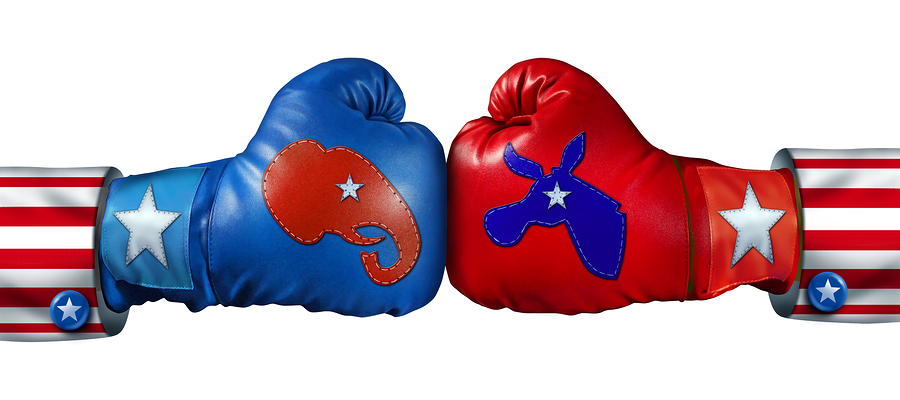
Our politics is increasingly polarized. Yelling matches on cable news are the norm, and those with opposite viewpoints are labeled as bigoted or anti-American. The division has gotten to the point that, according to the Pew Research Center, most Republicans and Democrats have few or no friends in the opposing party. The question, therefore, is two-fold: a) What are the causes of increased polarization? and b) Is increased polarization something we need to address? I’ll begin with the former. One reason for this increased polarization is that Americans are more often choosing to live among people who are like them politically. Here is an Alabama example of that phenomenon. In 1992, Bob Dole, a Republican, won Marshall County by 15 points. In 2016, Donald Trump’s margin of victory in the county was almost 70 points. Another reason for our increased polarization is the rise of the Internet and social media. While the increased availability of news sources via the Internet is helpful, many choose only to read from sources they agree with politically. The Wall Street Journal offers a tool that allows users to compare the Facebook feeds of people who identify as conservative or liberal. A quick minute or two of comparing the feeds reveals not only the difference between the selection of news, but the frequency of inflammatory rhetoric used to describe people on the other side. Although choosing to live near like-minded people and following conservative or liberal news sources are not inherently bad practices, by doing so we unknowingly create an echo-chamber of group-validation that gives no opportunity for differing opinions. This echo-chamber, with its lack of diverse thought or self-criticism, is a major contributor to increased polarization. So, is this polarization something we need to address? I believe it is. Increased polarization has created antagonistic relationships within our state and country. In our communities, we are bombarded with rhetoric that describes those with different views as unreasonable, ignorant, and even evil. Since we so infrequently interact with those politically different from us, we can find ourselves believing those characterizations. Although it may be hard to accept, most people, regardless of political affiliation, are genuinely trying to work towards the greater good. The difference between conservative and liberal thought, however, is in the means – how we achieve the greatest good. Conservatives, myself included, should therefore spend less time worrying that the left is deliberately attempting to destroy our country. Instead, we should intentionally befriend those politically different while, at the same time, working diligently to demonstrate that conservative policies most effectively create the most good for the most people. The more we are willing to acknowledge that those on the other side are people made in the image of God – not scheming adversaries to be defeated – the more likely we will arrive at solutions that work. While I believe that these solutions will be overwhelmingly conservative, we should not be afraid of honest discussion and criticism if we really are correct. One benefit of purposefully countering increased polarization is that we will, hopefully, stop being wary of good policy simply because it has some support from the other side. Some pursuits, like reforming civil asset forfeiture, supporting our veterans, and protecting our national security, are not right vs. left issues, but right vs. wrong issues. We should be thankful, not worried, when both sides agree. Undoubtedly, stemming the tide of polarization will be good for both Alabama and the country. It will require work, but it will be effort well spent. ••• Parker Snider is the Alabama Policy Institute‘s policy relations manager.


